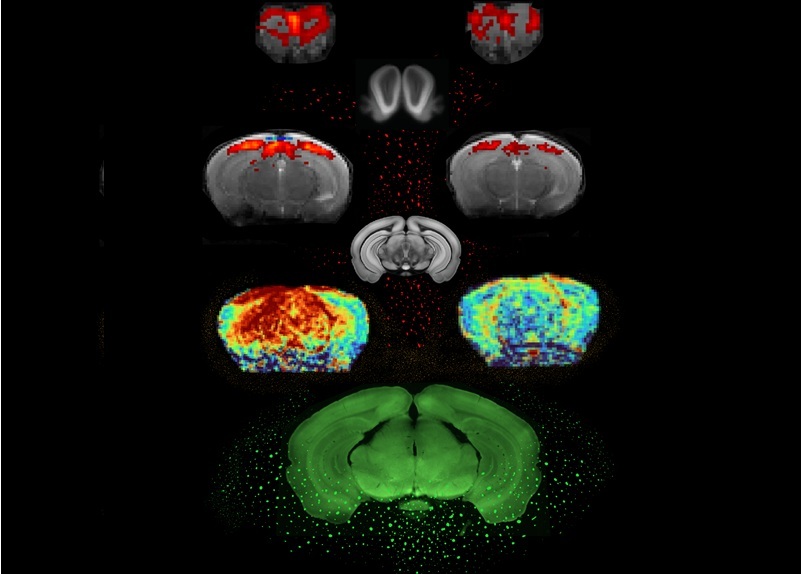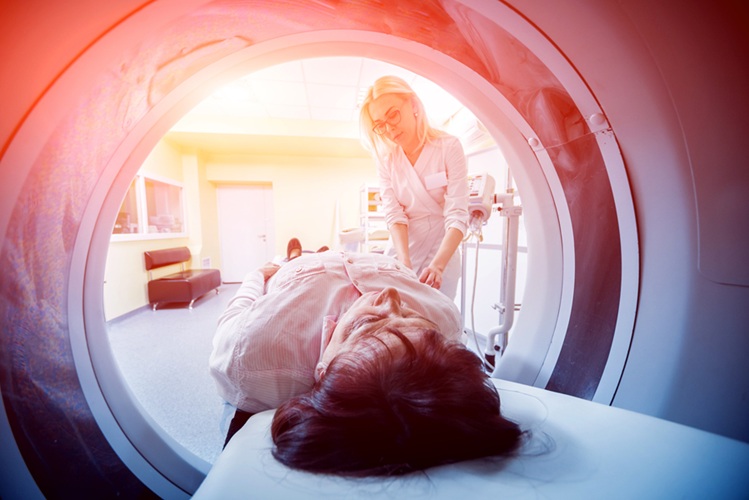Affibody AB and GE Healthcare in Molecular Collaboration
|
By MedImaging staff writers Posted on 28 Jun 2006 |
Affibody AB (Stockholm, Sweden) has entered a research agreement with GE Healthcare (Chalfont Sr. Giles, UK), a division of the General Electric Co.. Under the agreement, Affibody will provide Affibody molecules for three disease targets as defined by GE Healthcare.
Affibody molecules, with their favorable biodistribution, high target specificity, and acceptability to protein-engineering approaches, are considered suitable candidates for targeted in vivo imaging applications. The goal is to allow early diagnosis of disease and thereby allowing clinicians to optimize the therapy on a customized basis. Under the agreement, GE Healthcare has the exclusive option to take any licenses required for developing and marketing imaging agents resulting from this collaboration. Affibody retains all rights for use of the selected Affibody molecules outside the scope of in vivo diagnostic and medical imaging.
Dr. Ulf Boberg, chief executive officer, Affibody, commented, "We are delighted to announce an agreement with GE Healthcare, regarded as a leader in the rapidly expanding field of molecular imaging. This agreement broadens the current uses of Affibody molecules in medicine, and demonstrates the increasing interest in the use of molecular imaging agents to monitor disease.”
Affibody uses innovative protein engineering technologies for the development of the affinity ligand, Affibody molecules. These small, robust protein molecules can be designed to bind to a number of target proteins, are easily produced, and have a high stability in a broad range of conditions. They appear well-suited for molecular imaging, and when combined with a cytotoxic payload, could potentially be utilized for targeted therapy.
Affibody also develops Affibody molecules for various biotechnology applications in a number of commercial collaborations. Affibody was founded in 1998 by researchers from the Royal Institute of Technology and the Karolinska Institute (Stockholm, Sweden).
Related Links:
Affibody
GE Healthcare
Affibody molecules, with their favorable biodistribution, high target specificity, and acceptability to protein-engineering approaches, are considered suitable candidates for targeted in vivo imaging applications. The goal is to allow early diagnosis of disease and thereby allowing clinicians to optimize the therapy on a customized basis. Under the agreement, GE Healthcare has the exclusive option to take any licenses required for developing and marketing imaging agents resulting from this collaboration. Affibody retains all rights for use of the selected Affibody molecules outside the scope of in vivo diagnostic and medical imaging.
Dr. Ulf Boberg, chief executive officer, Affibody, commented, "We are delighted to announce an agreement with GE Healthcare, regarded as a leader in the rapidly expanding field of molecular imaging. This agreement broadens the current uses of Affibody molecules in medicine, and demonstrates the increasing interest in the use of molecular imaging agents to monitor disease.”
Affibody uses innovative protein engineering technologies for the development of the affinity ligand, Affibody molecules. These small, robust protein molecules can be designed to bind to a number of target proteins, are easily produced, and have a high stability in a broad range of conditions. They appear well-suited for molecular imaging, and when combined with a cytotoxic payload, could potentially be utilized for targeted therapy.
Affibody also develops Affibody molecules for various biotechnology applications in a number of commercial collaborations. Affibody was founded in 1998 by researchers from the Royal Institute of Technology and the Karolinska Institute (Stockholm, Sweden).
Related Links:
Affibody
GE Healthcare
Latest Industry News News
- GE HealthCare and NVIDIA Collaboration to Reimagine Diagnostic Imaging
- Patient-Specific 3D-Printed Phantoms Transform CT Imaging
- Siemens and Sectra Collaborate on Enhancing Radiology Workflows
- Bracco Diagnostics and ColoWatch Partner to Expand Availability CRC Screening Tests Using Virtual Colonoscopy
- Mindray Partners with TeleRay to Streamline Ultrasound Delivery
- Philips and Medtronic Partner on Stroke Care
- Siemens and Medtronic Enter into Global Partnership for Advancing Spine Care Imaging Technologies
- RSNA 2024 Technical Exhibits to Showcase Latest Advances in Radiology
- Bracco Collaborates with Arrayus on Microbubble-Assisted Focused Ultrasound Therapy for Pancreatic Cancer
- Innovative Collaboration to Enhance Ischemic Stroke Detection and Elevate Standards in Diagnostic Imaging
- RSNA 2024 Registration Opens
- Microsoft collaborates with Leading Academic Medical Systems to Advance AI in Medical Imaging
- GE HealthCare Acquires Intelligent Ultrasound Group’s Clinical Artificial Intelligence Business
- Bayer and Rad AI Collaborate on Expanding Use of Cutting Edge AI Radiology Operational Solutions
- Polish Med-Tech Company BrainScan to Expand Extensively into Foreign Markets
- Hologic Acquires UK-Based Breast Surgical Guidance Company Endomagnetics Ltd.
Channels
Radiography
view channel
Machine Learning Algorithm Identifies Cardiovascular Risk from Routine Bone Density Scans
A new study published in the Journal of Bone and Mineral Research reveals that an automated machine learning program can predict the risk of cardiovascular events and falls or fractures by analyzing bone... Read more
AI Improves Early Detection of Interval Breast Cancers
Interval breast cancers, which occur between routine screenings, are easier to treat when detected earlier. Early detection can reduce the need for aggressive treatments and improve the chances of better outcomes.... Read more
World's Largest Class Single Crystal Diamond Radiation Detector Opens New Possibilities for Diagnostic Imaging
Diamonds possess ideal physical properties for radiation detection, such as exceptional thermal and chemical stability along with a quick response time. Made of carbon with an atomic number of six, diamonds... Read moreMRI
view channel
Simple Brain Scan Diagnoses Parkinson's Disease Years Before It Becomes Untreatable
Parkinson's disease (PD) remains a challenging condition to treat, with no known cure. Though therapies have improved over time, and ongoing research focuses on methods to slow or alter the disease’s progression,... Read more
Cutting-Edge MRI Technology to Revolutionize Diagnosis of Common Heart Problem
Aortic stenosis is a common and potentially life-threatening heart condition. It occurs when the aortic valve, which regulates blood flow from the heart to the rest of the body, becomes stiff and narrow.... Read moreUltrasound
view channel
New Incision-Free Technique Halts Growth of Debilitating Brain Lesions
Cerebral cavernous malformations (CCMs), also known as cavernomas, are abnormal clusters of blood vessels that can grow in the brain, spinal cord, or other parts of the body. While most cases remain asymptomatic,... Read more.jpeg)
AI-Powered Lung Ultrasound Outperforms Human Experts in Tuberculosis Diagnosis
Despite global declines in tuberculosis (TB) rates in previous years, the incidence of TB rose by 4.6% from 2020 to 2023. Early screening and rapid diagnosis are essential elements of the World Health... Read moreNuclear Medicine
view channel
Novel Radiolabeled Antibody Improves Diagnosis and Treatment of Solid Tumors
Interleukin-13 receptor α-2 (IL13Rα2) is a cell surface receptor commonly found in solid tumors such as glioblastoma, melanoma, and breast cancer. It is minimally expressed in normal tissues, making it... Read more
Novel PET Imaging Approach Offers Never-Before-Seen View of Neuroinflammation
COX-2, an enzyme that plays a key role in brain inflammation, can be significantly upregulated by inflammatory stimuli and neuroexcitation. Researchers suggest that COX-2 density in the brain could serve... Read moreGeneral/Advanced Imaging
view channel
First-Of-Its-Kind Wearable Device Offers Revolutionary Alternative to CT Scans
Currently, patients with conditions such as heart failure, pneumonia, or respiratory distress often require multiple imaging procedures that are intermittent, disruptive, and involve high levels of radiation.... Read more
AI-Based CT Scan Analysis Predicts Early-Stage Kidney Damage Due to Cancer Treatments
Radioligand therapy, a form of targeted nuclear medicine, has recently gained attention for its potential in treating specific types of tumors. However, one of the potential side effects of this therapy... Read moreImaging IT
view channel
New Google Cloud Medical Imaging Suite Makes Imaging Healthcare Data More Accessible
Medical imaging is a critical tool used to diagnose patients, and there are billions of medical images scanned globally each year. Imaging data accounts for about 90% of all healthcare data1 and, until... Read more




 Guided Devices.jpg)
















